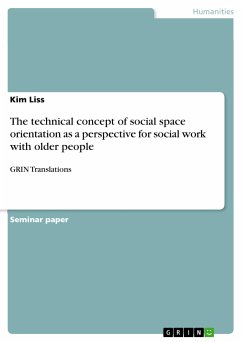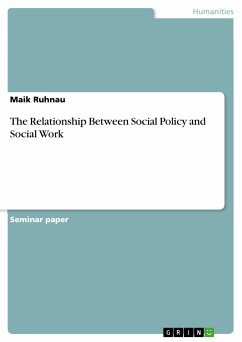Seminar paper from the year 2005 in the subject Social Work, grade: 1,0, University of Applied Sciences Merseburg, language: English, abstract: When I started working on the topic of power and powerlessness in social work, I did not have many questions. It seemed self-evident that a social worker would be aware of his or her professional power and know how to use it wisely in terms of purposeful work with clients. In a closer examination of the literature, however, power in the context of social work turned out to be a controversial, even problematic topic: There is a lot of talk about power in general - but more silence about power in social work. Therefore, it was necessary to investigate this issue. In dealing with power, we must also consider its counterpart, powerlessness. Powerlessness always means the absence of one's own power. The fact that members of the helping professions, but first and foremost clients, can feel powerless, helpless, is a recognized and accepted feeling. The task here must be to find ways out of one's own powerlessness so as not to be at its mercy, to learn to accept it as one's own limits, and to show the client ways to overcome his powerlessness. Power is rarely discussed; it is pushed away. Power in the social work field is often seen as something negative. "Thus, 'power' is immediately equated with 'abuse of power', with a condition that must be overcome as quickly as possible" (Stiels - Glenn 1996, p. 16). Power is denied. Assuming the existence of power in social work, and indeed its justification, this thesis will deal primarily with asking why. After defining and explaining the terms, the second chapter deals with possible causes, reasons, their consequences and the problem of the abuse of power. Powerlessness as the counterpart of power and as a feeling that can be professionally countered by social workers, be it their own powerlessness or that of the client, is addressed in chapter 3. Concluding theses on possibilities and limits for a responsible use of professional power conclude my remarks in the last chapter.
Dieser Download kann aus rechtlichen Gründen nur mit Rechnungsadresse in A, B, BG, CY, CZ, D, DK, EW, E, FIN, F, GR, HR, H, IRL, I, LT, L, LR, M, NL, PL, P, R, S, SLO, SK ausgeliefert werden.









